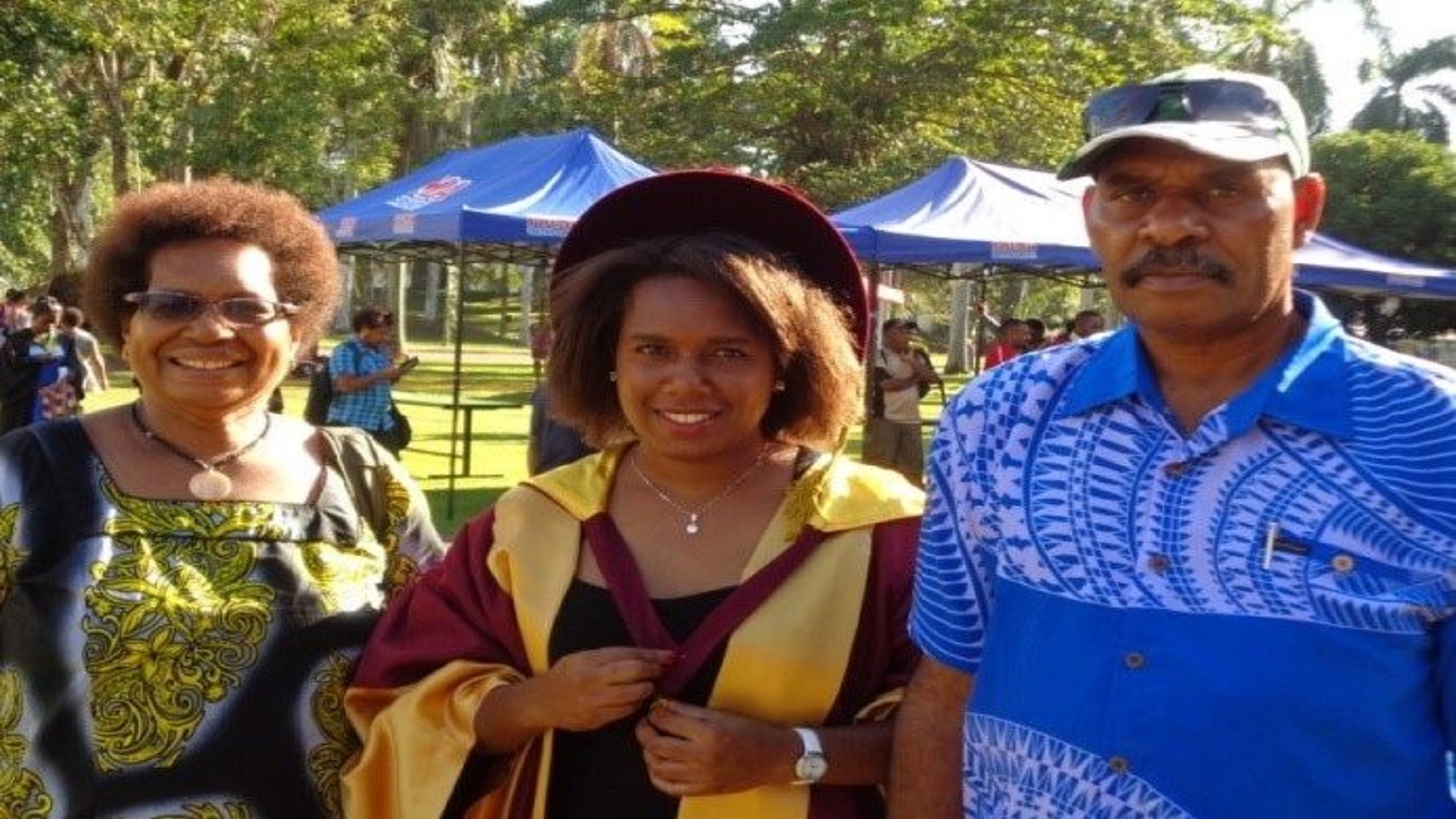At the end of Year 12 in 2006, Gwendolyn Ban was the dux of her class of Brandi Secondary School in East Sepik. She had applied and was accepted to study at the University of Technology in Lae.
But, at the time, things were difficult for the family.
Gwen knew her mum, Rose, and dad, Nelson, couldn’t afford university fees and she didn’t know where she was going to find the money.
“My parents were going through financial difficulties.They argued a lot.
“I used to see them gather coins to make deposits so that the bank would not close their accounts.”
Towards the school fee deadline, there was still no hint of a solution.People close to her even hinted at the possibility that she might not be able to go to University.
Gwen was left with little else but her faith. She prayed.
“I know many people don’t believe. But I believe there is a God. My dad asked me about Unitech and I said, I will go to Unitech. There’s a reason why I was chosen.
“Then as the due date approached, dad got a call at 12am to do a job. The money they paid him was the amount needed for the school fee!”
Undergraduate studies meant she was staying in one place for an extended period. For Gwen, this was the first time in her life that this was happening. Because of her dad’s job transfers, she had attended three high schools.
The thought of becoming an agricultural scientist was something she had thought about as one of several options of study in ninth grade. But for the star pupil, biology remained one of her biggest challenges.
“I had an aunt who is a scientist. She traveled to Japan and Canada.I wanted to do the same, I thought.”
In 2011, Gwen began her postgraduate studies at the University of Technology in Lae.
Her research titled: Study the Effect of Trichoderma species on Soilborne Fungi, looked very promising and it prompted the University to upgrade her level of study to a PhD.
Her research studied the use of one type of fungi as a biological control agent. If the methods are well developed and applied, it has the potential to reduce diseases and increase agriculture production in the country.
But Gwen says the work is still a long way off from being used in the field.
“There are huge benefits for vegetable farmers. But we have to grow the fungi and study their shelf life maybe using cocoa pods or rice stalks.
“That part is a whole different study.”
In 2016, at 28, Gwendolyn Ban graduated with a Doctor of Philosophy making her the youngest Papua New Guinean woman to graduate with such a degree from Unitech.
On the university publication she recalled the challenge: “When I was upgraded to PhD, a lot of people told me that I was too young and I didn’t have any experience so I shouldn’t do it. And it was the first time at Unitech for a candidate to be upgraded straight to PhD without even graduating with a masters. So it was tough having to prove that I could do this.”
On graduation day, her parents came to see her don the orange and maroon gown reserved for PhD graduands. It was perhaps the proudest moment for her dad, who, at one point, didn’t have the money to pay for Gwen’s first year at University.
As Dr. Gwendolyn Ban, researcher, academic and lecturer, she still holds dear her father’s advice and inspiration.
“You know, my parents have been married for 30 years and I have never seen my dad lay a hand on my mum. He is still an inspiration.
“Today, my dad has several businesses. And this is a person who finished school in Grade 12.
“He always told me that I have to add value with what I have. He told me, if I can do this with my education. Think about what you can do with your PhD.”


